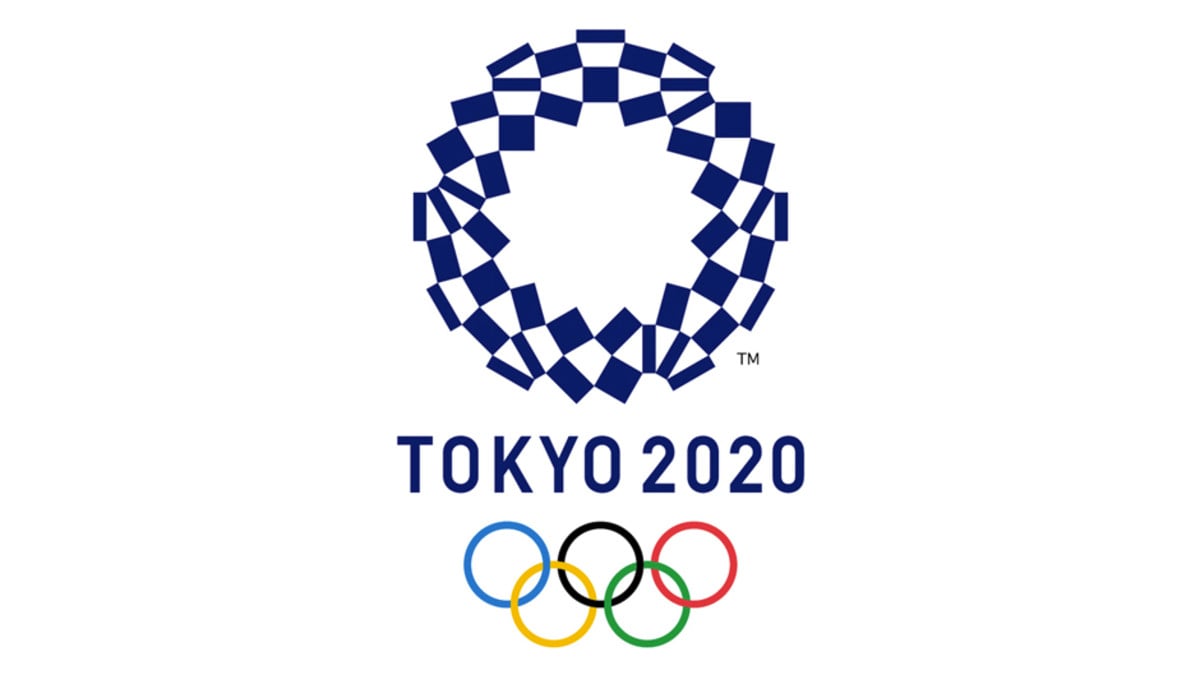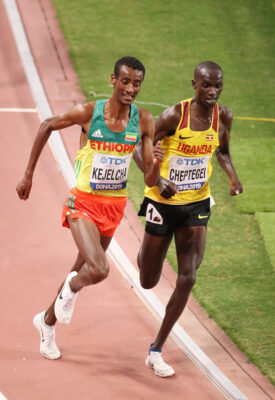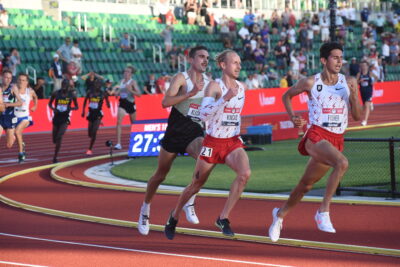2020 Olympic Men’s 10K Preview: Who Will Follow in the Footsteps of Legends?
By Jonathan Gault
July 26, 2021
The track & field competition at the 2020 Olympics in Tokyo (in 2021) kicks off on Friday. There’s only one final on tap, but it’s a great one: the men’s 10,000 meters.
Anyone who wins an Olympic title carves out their own place in track & field history, but the men’s 10,000 meters in particular has been a breeding ground for legends over the past two decades, featuring some of the sport’s most iconic races. Here’s the complete list of winners, dating back to 1996: Haile Gebrselassie, Haile Gebrselassie, Kenenisa Bekele, Kenenisa Bekele, Mo Farah, Mo Farah. It worked out rather nicely: Geb owned the ’90s, Bekele owned the ’00s, and Farah owned the ’10s.
Who will own the ’20s? Friday’s race will go a long way toward determining the answer to that question.
|
Race time: Friday, July 30, 7:30 a.m. ET (20:30 Japan) 2019 Worlds results 2021’s fastest performers (among men entered) |
That’s because this race features a field truly worthy of an Olympic final. And most of the top contenders are guys who should be around for a while. World record holder Joshua Cheptegei of Uganda is 24, and he’s older than most of the other contenders. Half marathon world champ Jacob Kiplimo of Uganda and Ethiopia’s Berihu Aregawi are 20. Ethiopian trials champ Selemon Barega is 21, as is Kenya’s Rhonex Kipruto, the 2018 world junior champ who won bronze in 2019. 2019 silver medallist Yomif Kejelcha of Ethiopia is 23 while Kenya’s Rogers Kwemoi is 24. Of the medal contenders, only Canada’s Moh Ahmed (30) is close to what you might call “old.”
Just listing those names has me salivating, because it’s rare to see the best 10k guys in the world square off. The only 10ks that really exist at the professional level anymore fall into one of three categories: time trials to hit an Olympic/World qualifier (or break a world record); national championships to pick a team; and Olympic/World Championships. The latter are the best of the bunch and it’s been almost two years since our last one. It’s time to get excited.
But that paucity of elite 10ks makes this a tough race to evaluate. The Kenyans and Ethiopians both raced each other at their Olympic Trials, but outside of that there’s not a ton of head-to-head data to analyze. I’ll try to break the race down anyway.
The Favorite (On Paper)
Uganda’s Joshua Cheptegei took silver at Worlds in 2017, then upgraded to gold in 2019 once Mo Farah moved to the marathon. He’s the reigning World Cross Country champion. And last year, he ran world records in both the 5,000 (12:35) and 10,000 (26:11). Everything about his resume says that Cheptegei should take the next step in Tokyo and add the one accomplishment missing from his resume: Olympic gold.
And yet Cheptegei may not even be the best 10,000-meter runner in Uganda. His countryman, Jacob Kiplimo, finished just four seconds back of Cheptegei at World XC in 2019 but missed Worlds on the track that year due to injury. Kiplimo didn’t break any world records last year, but he showcased ridiculous range by running personal bests of 7:26, 12:48, and 57:37 and beating Cheptegei in their only head-to-head matchup at the World Half (a race Kiplimo won). So Kiplimo has a faster 3k pb (from a race where he outkicked 1500 stud Jakob Ingebrigtsen) and is better than Cheptegei in the half marathon. Suddenly Cheptegei doesn’t seem like as much of a favorite.
And then there are Cheptegei’s results this year. Back in February, he ran the same road 5k in Monaco as he did in 2020, but his time, 13:13, was 22 seconds slower. And in his most recent race, in Florence on June 10, he tried to use his strength to drop the 5k field but fell well short, fading to 12:54 in a race won by Ingebrigtsen in 12:48. Maybe a peaked Cheptegei will fare better in Tokyo. But so far, he does not appear as fit as he was in 2019 or 2020.
Kiplimo, meanwhile, looked incredible in ripping a 26:33 in Ostrava (splits of 13:27/13:06). Outside of Cheptegei’s WR last year, Kiplimo’s time was the fastest 10k since Bekele back in 2008. He’s lightly raced in 2021, though, but undefeated: aside from Ostrava, his only other race was a 12:55 win in Lucerne on June 29.
The Rest of the Field
In the last two global 10,000m championships, running 26:48 and closing in 55 seconds for your last lap was enough to win the gold medal. That’s what Cheptegei did in 2019 (26:48.35, 4:03 final 1600, 55.38 last lap), and it’s basically what Mo Farah did in 2017 (26:49.51, 4:05 final 1600, 55.63 last lap).
That may not be good enough in 2021.
Last month, at the Ethiopian trials in Hengelo, 2019 Worlds 10k silver medalist Yomif Kejelcha ran 26:49.73, closing in 4:05 for his final 1600 and 52 seconds for his last lap. That was only good enough for second behind 2019 Worlds 5k silver medalist Selemon Barega, who also ran a 52-second last lap to win in 26:49.51. If either of those men can replicate that performance in Tokyo, they will have a great shot at gold — provided, of course, they can defeat the other. Of course, the weather in Hengelo was a lot cooler than what it will be in Tokyo.
The third member of the Ethiopian team, Berihu Aregawi, was slightly behind Kejelcha and Barega at the trials (third in 26:50.37), and, at 20, is the youngest of the trio, which is either a blessing (most room for improvement) or a curse (no senior major championship experience). Normally running 26:50 with a 53-second last lap would be enough for medal consideration, but in a field this stacked, Aregawi may be on the outside looking in.
Unfortunately, the winner of the Kenyan trials, Geoffrey Kamworor, won’t be in Tokyo as he withdrew the week before the race with an ankle injury. Kenya still has a potential medal threat in 2019 fourth-placer Rodgers Kwemoi, who defeated Kamworor and half marathon world record holder Kibiwott Kandie at the Kenyan XC champs earlier this year (Kamworor dropped out). Kwemoi also ran stunningly fast at the Kenyan Olympic trials. Competing at around 5,500 feet of elevation in Nairobi, Kwemoi ripped a 27:05 (Kamworor ran 27:01).
Using the NCAA conversion formula (take this with a grain of salt), that 27:05 converts to a truly insane 26:05. More context: in 2015, Kamworor ran 27:11 at the Kenyan trials and wound up second at Worlds behind Farah; in 2019, he ran 27:24 and won the New York City Marathon that fall. At the very least, we know Kwemoi is incredibly fit.
The other Kenyan contender, 2019 bronze medalist Rhonex Kipruto, ran some stellar pbs last year (26:24 road 10k WR and 57:49 half) but was only named to the Olympic team last week after Kamworor’s withdrawal as Kipruto dropped out of the Kenyan trials. (Kipruto still isn’t listed among the entries on the World Athletics site, but Athletics Kenya has said he will be in Tokyo).
(The third Kenyan, Weldon Langat, isn’t expected to contend for a medal as he couldn’t hit the standard at sea level in Stockholm in early May but ran 27:24 at altitude in mid-June).
The problem for guys like Kwemoi and Kipruto is that absurd aerobic fitness is not enough to win an Olympic 10k title. Pushing the pace to remove the sting from the big kickers has become a common strategy in recent global 10k finals, and the winning times have been quick as a result: 27:01, 27:05, 26:49, and 26:48. But in none of those cases did the guy pushing the pace actually win the race. Turns out, it’s nearly impossible to drop all of the world’s best 10k runners.
Outside of the East Africans, the only other man with a realistic medal shot is Moh Ahmed of Canada (who was born in Somalia). In the global championships, Ahmed has been better in the 5k (where he took bronze in ’19) than the 10k, where he has finished 18th, 9th, 32nd, 8th, and 6th in five Olympic/World appearances. But as a 12:47 guy and one of the best 5k runners in the world, he has to be taken seriously if he’s still around late in the race.
The Americans
Since 1988, just one man born outside of Africa has medalled in the Olympic 10,000 meters: the USA’s Galen Rupp in 2012. The odds of Woody Kincaid, Grant Fisher, and Joe Klecker joining the club are not good.
The reasoning is fairly simple. When the last two winning times at global championships are 26:49 and 26:48 and only one person in the history of your country (Rupp) has run that fast, you’re probably not going to medal. Back in February, Fisher and Kincaid ran 27:11 and 27:12 in an optimized, perfect-conditions race in California. To medal at the Olympics, they’ll likely have to run about 20 seconds faster, close their last lap three seconds faster, and do it all in the heat and humidity of Tokyo.
The only way any of the Americans medal is if this race goes really slow, which is unlikely given the presence of Kipruto and others who may want a fast pace. But if the pace does dawdle, then that’s the Americans’ window. Since 2001, these are the slowest winning times in men’s and women’s global 10,000-meter finals:
Men
2012 Olympics, 27:30.42
2013 Worlds, 27:21.71
Women
2007 Worlds, 31:55.41
2015 Worlds, 31:41.31
What do those races have in common? Americans medalled in three of them (and finished fourth in the other)!
The slower the pace, the more people are allowed to hang around and the more important your kick becomes. And the Americans — particularly US champ Woody Kincaid — can kick. If the final in Tokyo is a 27:20 or 27:30 race, an American could have a chance to steal a medal.
But it’s still not a great chance. Remember, at the Ethiopian trials, Barega and Kejelcha both closed in 52 seconds and ran 26:49. Kincaid closed in 53.47 to win the US trials, even though the winning time (27:53) was over a minute slower.
***
JG prediction: 1. Kiplimo 2. Cheptegei 3. Barega
Look for Uganda to make history here and pick up their first two Olympic distance medals on the track. Uganda has only won two Olympic track medals: Davis Kamoga won 400m bronze in 1996 and John Akii-Bua won 400 hurdles gold in 1972, although Stephen Kiprotich did win marathon gold in 2012.
The big kickers in this race are Kiplimo, Barega, and Kejelcha. Cheptegei isn’t an awful kicker — he did outkick Kejelcha at the 2019 Worlds — but a fast race would benefit him. Cheptegei’s ideal race is similar to what played out in 2017 and 2019, when he took silver and gold, where a fast race (and, fast final mile) meant the winner only had to close in 55 for their last lap. In that respect, the presence of Kenya’s Rhonex Kipruto — who pushed the pace early in Doha and could well do the same in Tokyo — could be key as it could save Cheptegei from having to do the work himself in the early and middle stages.
But considering Barega and Kejelcha closed in 52 at the Ethiopian trials in the same kind of race — whether due to the supershoes saving their legs or increased fitness — it will take something faster, in the 26:20s or 26:30s, to dull their kicks. Is Cheptegei (or Kipruto) fit enough to run that sort of effort from the front (especially with no pacemakers/Wavelight)? I’m not sure. But I don’t know if leaving it to a kick is any better for Cheptegei.
The one thing I know about this race is at least one total stud is not going to medal. Cheptegei should be the favorite, and it feels unfair to write him off after one subpar race in two years (and he still ran 12:54 in that “subpar” race). But this event is so stacked that even a slight sign of slippage is worrying. I don’t have any such concerns about Kiplimo, so I’m predicting the same 1-2 as at World XC in 2019…but this time, the order is reversed.
Talk about this article on our world-famous fan forum / messageboard.





